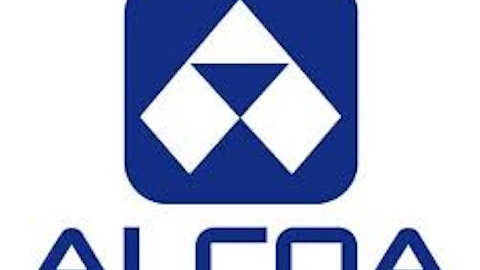August has been a bit of a rough patch for the iconic Dow Jones Industrial Average (INDEXDJX:.DJI), with the index down a bit more than 4% month to date. But make no mistake about it: The Dow Jones Industrial Average (INDEXDJX:.DJI) has been on fire this year, hitting multiple all-time highs and convincingly putting the financial meltdown of 2008-2009 in the rearview mirror.
However, as you might have anticipated, not everyone is on the same page as to where the Dow Jones Industrial Average (INDEXDJX:.DJI) will head next. Pessimists have been growing in numbers as mixed U.S. housing data, rising interest rates, and the potential for conflict with Syria are all stirring up emotions and uncertainty that could have a prolonged negative impact on the market. Specifically, five companies within the Dow have drawn quite the interest of short-sellers in recent weeks. Let’s have a look at which companies within the Dow Jones Industrial Average (INDEXDJX:.DJI) are most disliked by pessimists so we can use that knowledge to potentially avoid buying into heavily short-sold companies in the future.
Here are the Dow Jones Industrial Average (INDEXDJX:.DJI)’s five most hated stocks as of yesterday:
| Company | Short Interest As a % of Outstanding Shares |
|---|---|
| Alcoa Inc (NYSE:AA) | 9.78% |
| Intel Corporation (NASDAQ:INTC) | 4.92% |
| Caterpillar Inc. (NYSE:CAT) | 4.76% |
| Hewlett-Packard Company (NYSE:HPQ) | 2.58% |
| DuPont | 2.36% |
Source: S&P Capital IQ; data current as of 08/27/13.
Alcoa Inc (NYSE:AA)
Why are investors shorting Alcoa?
- As should be no surprise by now, Alcoa handily tops the Dow’s most short-sold companies — and with good reason. Alcoa Inc (NYSE:AA)’s bottom line is troubled by plenty of idle capacity and notoriously weak global commodity prices, which have been further hurt by a slowdown in GDP growth in China. Short-sellers expect ongoing metal demand weakness and slower global growth to prevail which would further pressure aluminum prices and hamper Alcoa Inc (NYSE:AA)’s profitability.
Is this short interest warranted?
- The answer is “yes,” that short-sellers are certainly logical for their bet against Alcoa, but I’d also refer to it as a fool’s bet at these levels. The majority of pessimism surrounding Alcoa is likely baked into its share price already. Both it and Russia’s RUSAL have been ardently focused on idling capacity and reducing supply to help buoy aluminum prices. In addition, global demand for aluminum is actually expected to expand by 7% this year, which would signal that we’re on the upswing, not a downtrend, within this cyclical industry. Alcoa still remains a Watchlist-worthy stock that I have on my potential buy list.

Source: Intel Free Press, Wikimedia Commons.
Intel Corporation (NASDAQ:INTC)
Why are investors shorting Intel?
- The bet against Intel grew ever so slightly larger this month as opposed to last month, with more skeptics expecting Intel Corporation (NASDAQ:INTC) to struggle with higher spending for R&D all while PC sales shrink. Despite being the dominant name in microprocessors, PCs are giving way to smartphones and tablets much faster than anyone had expected, causing Intel Corporation (NASDAQ:INTC) to scramble to find ways to replace a shrinking revenue stream. I don’t think short-sellers are actually silly enough to believe Intel is doomed, but I do believe they feel a few years of heavy investments will stymie cash flow and hurt bottom-line profits.
Is this short interest warranted?
- As I mentioned last month, that really depends on your investing timeframe. Over the past couple of weeks, short-sellers have been spot on with their negative call on Intel. There’s little denying that PC sales will remain weak over the near-term and Intel will somewhat struggle as it invests heavily in cloud-based hardware and its Atom chips for mobile products. Then again, Intel’s cash flow is so impressive that it’s now allowing for the company to pay out a 4% yield, all while it controls 85% of the PC microprocessor market and aims to bring in as much as 30% of its revenue from cloud-based hardware by 2020 . As a prime selection for my Basic Needs Portfolio, I’ll give you three guesses where I feel Intel is headed, and the first two don’t count!






